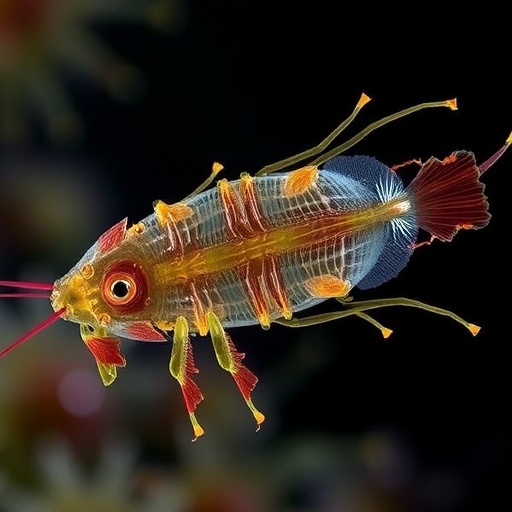Scientists Uncover Persistent Nutrient Upwelling in the Tropical Pacific Over Millions of Years, Challenging Dire Predictions for Future Fisheries
A groundbreaking study led by chemical oceanographer Patrick Rafter from the University of South Florida has unveiled compelling evidence that the nutrient-rich upwelling system in the eastern equatorial Pacific Ocean has remained remarkably stable over the past five million years, including during warmer climatic periods such as the Pliocene Epoch. This discovery fundamentally challenges previous assumptions that rising ocean temperatures would inevitably lead to the collapse of vital marine ecosystems in this region, home to some of the planet’s most productive fisheries.
The research team employed an innovative approach by analyzing nitrogen isotopes, specifically rare forms of nitrogen preserved within fossilized shells of microscopic plankton known as foraminifera. These tiny organisms, recovered from deep-sea sediment cores, provide a sensitive archive of past ocean nutrient dynamics. The principle behind this method lies in the geochemical fingerprint contained within the isotopic composition of organic matter. By meticulously extracting and examining these nitrogen isotopes, the scientists reconstructed the nutrient conditions that prevailed in the tropical Pacific Ocean during the warm intervals of the Pliocene, some 5.3 to 2.6 million years ago.
Nutrient upwelling—the process by which deep, nutrient-laden waters rise to the ocean surface—is critical for sustaining phytoplankton blooms, which form the foundational base of the marine food web. In the modern eastern tropical Pacific, these upwelling currents fuel vast biological productivity supporting thousands of fish species and the livelihoods of millions of people. However, contemporary climate models have predicted that with global warming, this vital nutrient supply may weaken or even collapse, leading to declines in marine biodiversity and fisheries.
Contradicting these forecasts, the study found no discernible decrease in nitrate concentrations within the data stretching back millions of years. The nitrogen isotope analyses indicated that despite sustained periods of elevated global temperatures during the Pliocene, the intensity of nutrient upwelling remained resilient, maintaining steady biological productivity in the region. This resilience suggests that the tropical Pacific ecosystem possesses inherent regulatory mechanisms that allow it to adapt to long-term climatic fluctuations without catastrophic loss of nutrient supply.
Rafter emphasized the significance of this discovery by highlighting the methodological advancement it represents. “While we cannot travel back in time, isotopic proxies like these serve as a powerful detective toolkit that allows us to peer into Earth’s climatic past with high resolution,” he explained. By integrating geochemical data with paleoceanographic reconstructions, scientists can refine predictive models for future ocean conditions, potentially revising dire projections about fisheries collapse under warming scenarios.
The painstaking analytical process involved researchers from multiple institutions, including the University of Massachusetts Boston, the University of California Irvine, and Princeton University. The interdisciplinary team hand-sorted foram shells extracted from sediment cores, dissolved these microscopic structures, and employed specialized bacterial cultures to isolate and measure the nitrogen isotopes with remarkable precision. This fusion of microbiological techniques and geochemical analysis exemplifies the innovative cross-disciplinary approaches driving contemporary environmental science.
Jesse Farmer, assistant professor at UMass Boston and co-lead author of the study, provided a balanced interpretation of the findings. While acknowledging that the rate of current global warming far exceeds natural historical changes and that additional anthropogenic pressures such as ocean acidification pose significant threats, Farmer noted, “It is encouraging to find evidence that the foundational nutrient supply for the eastern Pacific food web has remained stable during previous warm periods. This offers a cautious note of optimism amid widespread concern.”
The study’s results have profound implications for environmental policy and fisheries management. If nutrient availability remains robust even under warmer scenarios, it suggests that ecosystem productivity and fish populations in this critical region may exhibit greater resilience than climate models currently assume. However, the authors caution that sustaining healthy fisheries also depends on mitigating other stressors like overfishing and pollution, which could undermine ecosystem stability even if nutrient inputs persist.
Looking ahead, the research team intends to apply their nitrogen isotope detective toolkit to other oceanic regions to build a more comprehensive picture of how marine ecosystems have historically responded to climate change. Such paleoceanographic insights are invaluable for enhancing climate predictions, informing resource management, and guiding conservation efforts.
This study was conducted in the laboratory of Daniel Sigman at Princeton University, a leading figure in nitrogen isotope geochemistry, underscoring the importance of collaborative, cross-institutional research in addressing complex questions about Earth’s environment. The team’s work bridges the gap between geological time scales and modern climatic challenges, providing a rare window into the past that can help shape future scientific and policy frameworks.
These findings were published online in the prestigious journal Science on October 2, 2025, and highlight the dynamic and often surprising ways that ocean systems respond to global change. The data suggest a need to reconsider widely held assumptions about the vulnerability of marine nutrient cycles to climate warming, offering a more nuanced narrative of resilience amid environmental uncertainty.
As oceanographic research advances, studies like this emphasize the importance of integrating fossil records, isotopic data, and state-of-the-art molecular techniques to unravel the deep-time history of Earth’s marine ecosystems. This comprehensive approach not only enriches our understanding of past climates but also equips scientists and policymakers with better tools to anticipate and manage the future of the world’s oceans under the mounting pressures of anthropogenic change.
Subject of Research: Animal tissue samples
Article Title: Persistent eastern equatorial Pacific Ocean upwelling since the warm Pliocene
News Publication Date: October 2, 2025
Web References: https://www.science.org/doi/10.1126/science.ads8720
Image Credits: Credit: USF
Keywords: Paleoceanography, Oceanography, Ocean temperature, Climatology, Dead zones, Marine conservation, Marine food webs, Marine ecosystems




